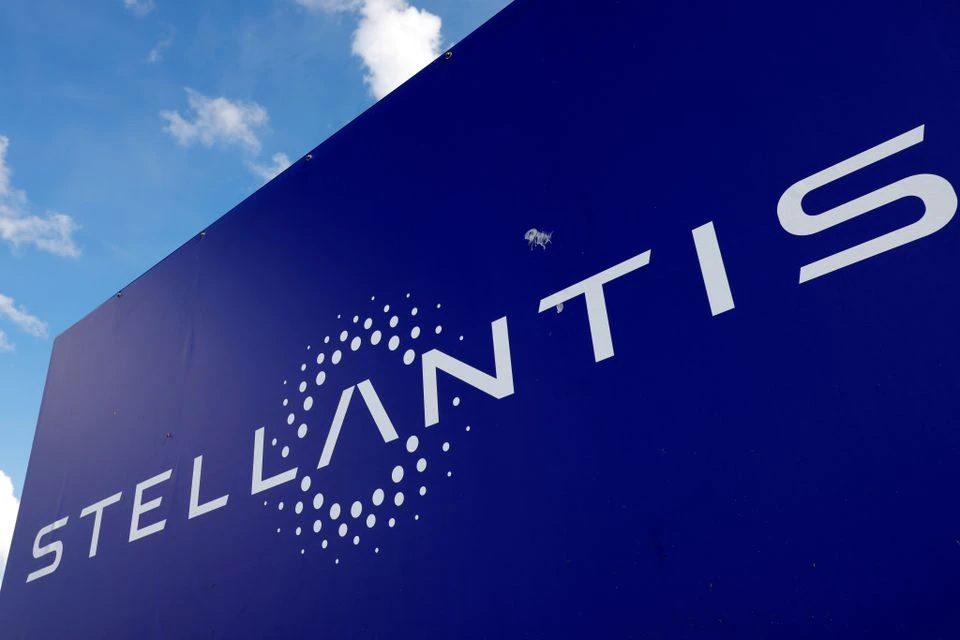Summary
- Union lays groundwork for potentially large strike at Stellantis
- UAW claims Stellantis has not honored product commitments
- Striking outside of wage talks would be rare step for UAW
DETROIT, (Reuters) – The United Auto Workers union plans to hold strike authorization votes at one or more of its Stellantis local chapters in the coming days, union president Shawn Fain said on Tuesday, which could lead to significant disruptions for the Jeep maker.
Fain has in recent months called out Stellantis CEO Carlos Tavares for failing to keep the product and investment commitments the automaker agreed to after the union conducted a six-week strike last autumn.
Stellantis said its focus remained on offering consumers a selection of affordable conventional and electric vehicles and ensuring the sustainability of the company and its workforce.
“The commitments we made during 2023 negotiations span the life of the 4-year, 7-1/2 month agreement, so it is not surprising that they haven’t been fully realized in the first year,” the company said in a statement.
Local Stellantis chapters have filed grievances related to the company’s alleged plan to move production of the Dodge Durango out of the United States, union leaders said this week. Stellantis said they have not confirmed any plans to move production of the vehicle.
The union has also spotlighted the company’s delays of a planned multi-billion dollar investment into a new battery plant and factory in Belvidere, Illinois.
“We are 100% within our rights and within our power to take strike action if necessary,” Fain said in a video address on Tuesday evening.
Automotive union strikes typically take place during national contract negotiations every four years. Large walkouts outside of that window are rare.
“The stakes are very high. For the union, it is a critical moment to ensure the gains it felt it has won are respected,” said Harley Shaiken, a labor professor at the University of California, Berkeley.
Fain said 28 Stellantis locals filed grievances, covering tens of thousands of UAW members. A UAW official said roughly 98% of Stellantis’ membership is covered through those grievances, making the potential strike as powerful as a nationwide walkout.
UNION MAKES STRATEGIC MOVE
The union’s targeted local-by-local approach is more strategic than calling a nationwide walkout, which Stellantis would have likely argued in court violates their contract, Shaiken said.
The union on Monday also filed unfair labor practice claims with the National Labor Relations Board against Stellantis, saying the company refused to provide information about its future product plans.
Securing jobs at the Belvidere plant was one of the union’s most prized victories after its nationwide strike against Stellantis, Ford Motor and General Motors late last year, and a symbol of the labor group’s ability to protect union jobs as the industry shifts to producing electric vehicles.
The UAW also won a record 25% general wage increase, the return of cost-of-living adjustments, and the right to strike over product commitments and investments, the latter of which Fain said allows them to hold a walkout against Stellantis now.
Stellantis has at the same time faced a backlash from its dealers and shareholders over rising inventories and lagging sales in recent months.
“It’s not every day that we the auto workers are on the same side as the dealers, the same side as the suppliers and the same side as the shareholders. But today is that day, and we are prepared to take strike action to make Stellantis keep the promise,” Fain said.
In line with union processes, Stellantis has several opportunities to respond to the UAW local chapters’ grievances. If the issue is unresolved, the union has 60 days to hold a vote on whether to strike.
Once a majority of workers at a union local authorize a strike, the UAW meets with the company seven times and either resolves the issue or strikes.
Reporting by Nora Eckert; Editing by Sandra Maler, Jamie Freed and Sonali Paul











